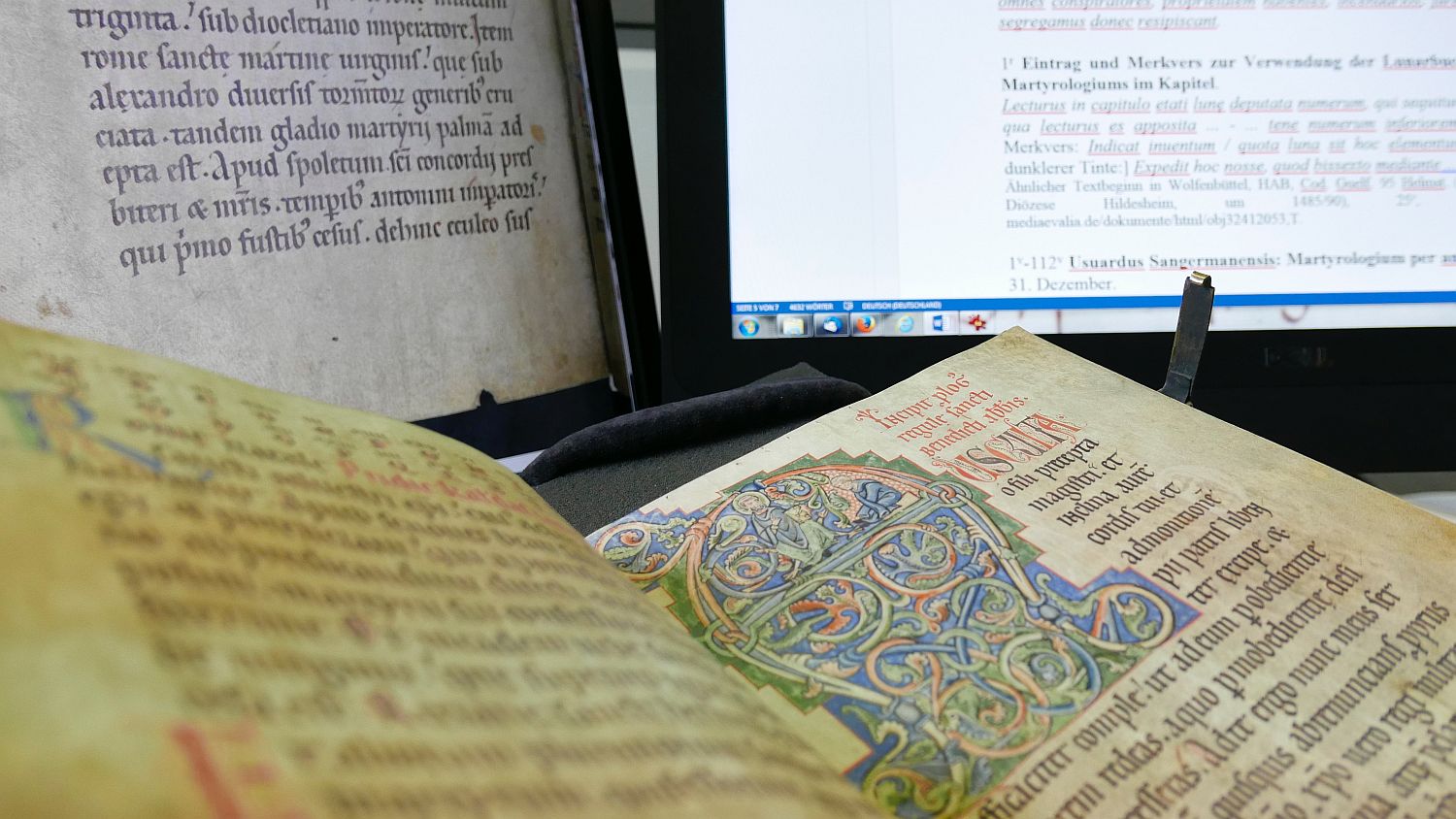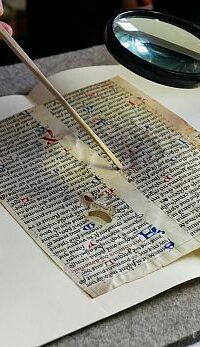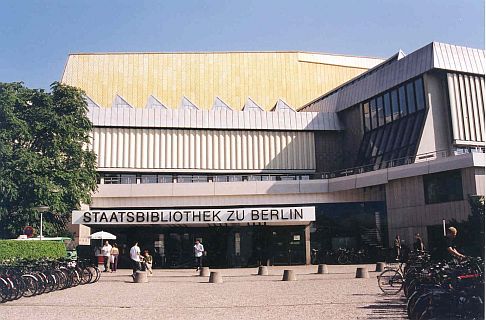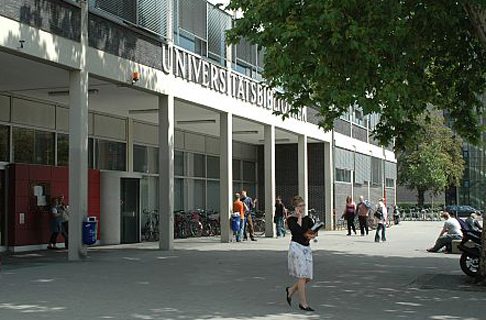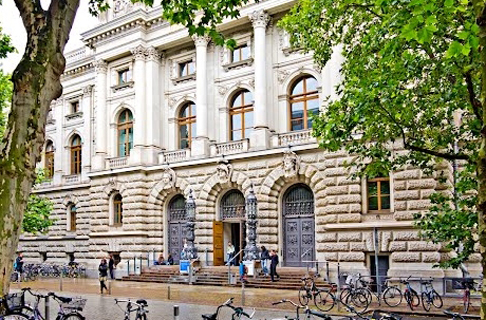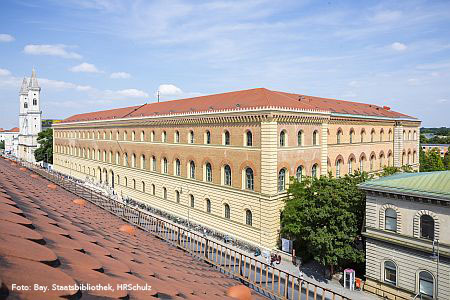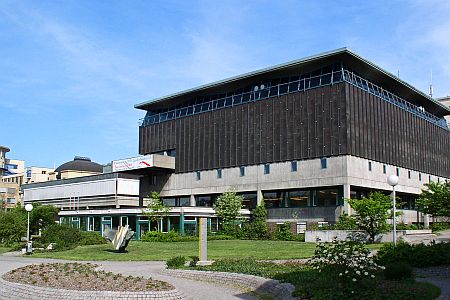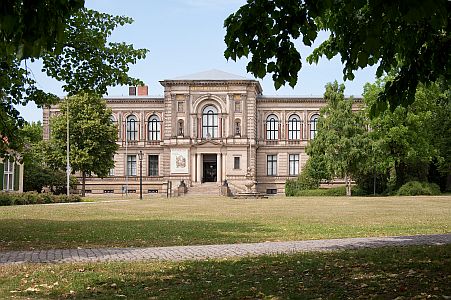The manuscript centres
With six manuscript centres, Germany holds a globally unique research infrastructure for the scientific refurbishment of its manuscript heritage. The focus is on the medieval and early modern manuscript heritage.
Manuscript centres are service facilities within large libraries which contain historical collections. Their main task is the preparation and execution of cataloguing projects for associated institutions and increasingly the digitisation of manuscripts. The manuscript centres provide a team of qualified staff members as well as comprehensive in-house resourcesfor literature and database research, the supervision of projects and quality control management.
Most of these projects are supported by the German Research Foundation (DFG). The establishment of the manuscript centres was undertaken at the initiative of the DFG. The six centres are institutionally affiliated, coordinate their activities, and develop strategic plans together.
